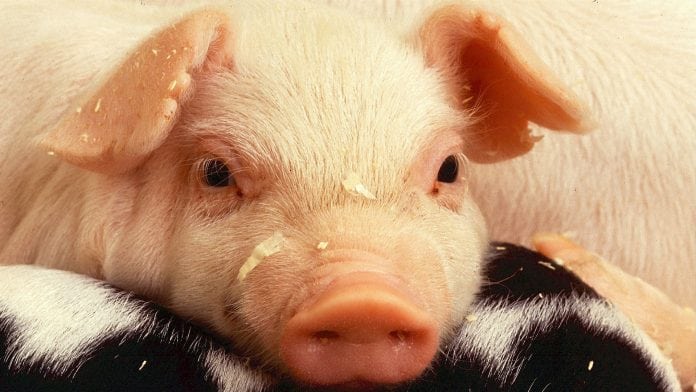
By changing the genetic code of pigs, scientists at the University of Edinburgh’s Roslin Institute, UK, have produced animals that can resist one of the world’s most costly animal diseases, porcine reproductive & respiratory syndrome, or PRRS.
According to the Porcilis PRRS website, several names have been used to refer to porcine reproductive & respiratory syndrome:
- Mystery swine disease;
- Blue ear disease;
- Porcine endemic abortion and respiratory syndrome (PEARS);
- Swine infertility; and
- Respiratory syndrome (SIRS).
Now, however, porcine reproductive & respiratory syndrome is the name commonly used and is recognised by the World Organisation for Animal Health (OIE). The disease causes significant losses in the pig industry due to reproductive disorders and growth retardation.
PRRS costs the pig industry around $2.5bn (~€2.15bn) each year in lost revenue in the USA and Europe alone.
What did the new research find?
In the new research, tests with the virus found the genetically modified pigs do not become infected at all, with the animals showing no signs that the change in their DNA has had any other impact on their health or wellbeing.
The virus infects pigs using a receptor on their cells’ surface called CD163. And no, tThe research team used gene editing techniques to remove a small section of the CD163 gene, focusing on the section of the receptor that the virus attaches to, leaving the rest of the molecule intact.
The team collaborated with Genus PLC, a leading global animal genetics company, to produce pigs with the specific DNA change.
While previous studies had shown that cells from these animals were resistant to the virus in lab tests, this is the first time researchers have exposed these pigs to the virus to see if they become infected.
The team found that none of the animals became ill when exposed to the virus, and blood tests found no trace of the infection.
This research, co-funded by the Biotechnology and Biological Sciences Research Council and Genus PLC, is published in the Journal of Virology.
Source: Phys.org
























